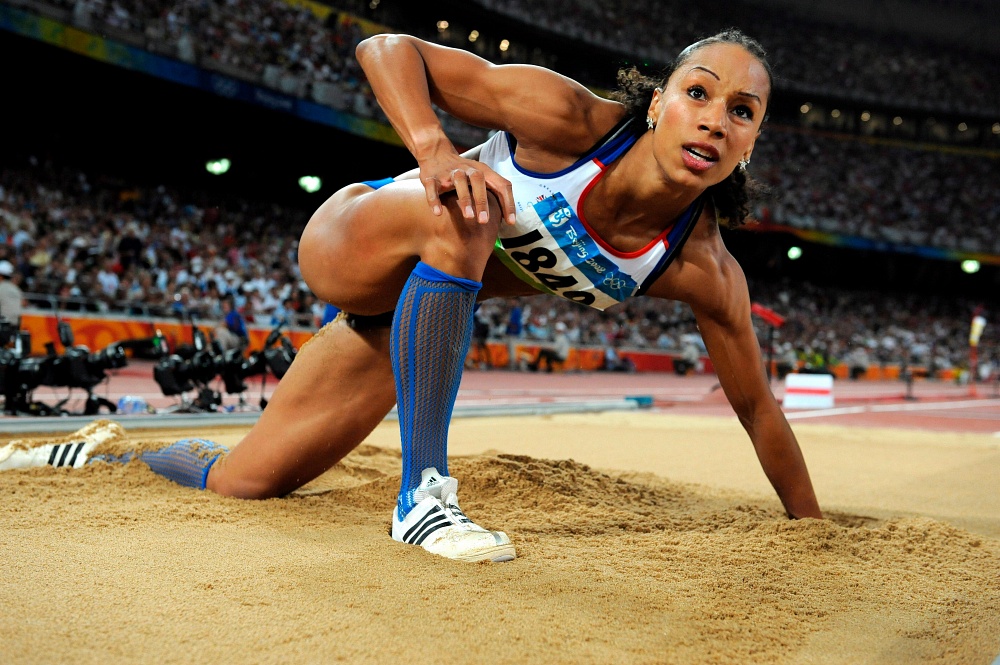Freed from all sensation of gravity, temperature, touch, sight and sound (which together account for 90% of normal neuromuscular activity), you conserve and redirect vast amounts of natural physical and mental energy.
Sports
We’re often visited by professional sportsmen and women who use the tanks to maximise their training routines and accelerate recovery from injuries and over training.
The float tank is an integral part of the Australian Institute of Sports training and recovery regime for Olympic athletes.
In 2008 we were honoured to have five athletes from Team GB use our float tanks on a weekly basis. Philips Idowu, Tasha Danvers and Jade Johnson, all told us that the float tanks had been ex-ceptionally beneficial for both physically and mentally in their individual performances.
Carl Lewis, arguably the greatest track athlete in history, used in-tank visualisation in his preparation for his gold medal-winning performances at the 1988 Seoul Olympics.
Medical
Floating takes the pressure of gravity off joints and muscles and your body is put in to a high state of physical relaxation. Blood pressure and oxygen intake reduce but at the same time blood flow and the distribution of red blood cells increases.
This speeds recovery from injury and helps flush any lactate, cortisone and adrenaline that may have built up through training or performance.
Floating has been shown to loosen the muscles and give more control over your nervous system. This reduces the risk of injury during training or competition. Floating not only accelerates the recovery process, but releases vast quantities of endorphins, the body’s natural painkiller.
Modern training methods focus on helping the athlete to master the ‘inner game’ to develop the perfect synchronicity between mind, body and emotion, which is the hallmark of a champion. In the tank the athlete can reach the level of concentration necessary for visualisation to have a quantifiable impact on his or her performance.
Physical exercise can cause a build of lactic acid, which is often experienced as pain and a cramping of the muscles. It has also been linked with feelings of depression known as ‘post-game let down’ which can also affect part-time joggers. Floating resets the body’s chemical and metabolic balance, reducing the risk of over training.







